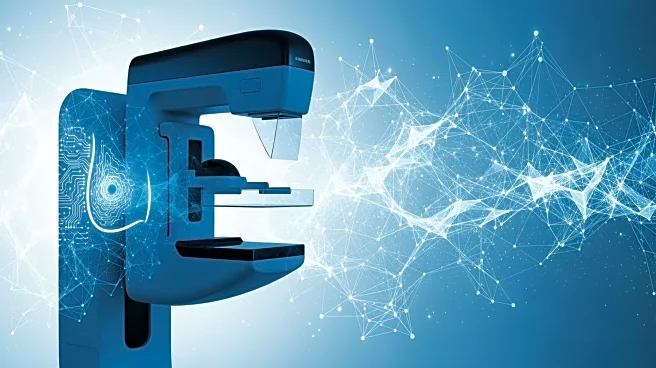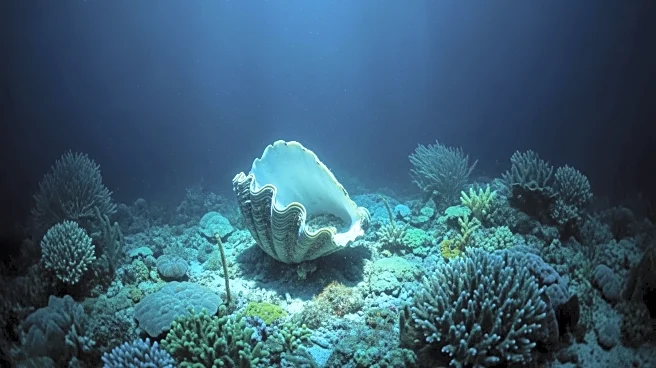What's Happening?
Recent research has identified the serine/threonine kinase STK32C as a significant factor in the progression of colorectal cancer (CRC) through its role in promoting angiogenesis. The study examined STK32C expression in CRC tissues and found a correlation
with poor patient prognosis. In vitro assays demonstrated that overexpression of STK32C enhanced endothelial cell proliferation, migration, and tube formation, while its knockout had the opposite effect. Mechanistically, STK32C was shown to phosphorylate STAT3 at Thr196, which in turn enhanced its interaction with JAK2, activating the IL-6/JAK2/STAT3 signaling pathway. In vivo experiments further confirmed that depletion of STK32C reduced tumor growth, VEGF-A expression, and microvessel density, underscoring its role as a pro-angiogenic driver.
Why It's Important?
The findings of this study are significant as they highlight STK32C as a potential biomarker and therapeutic target in colorectal cancer treatment. Angiogenesis is a critical process in cancer progression, providing tumors with the necessary blood supply to grow and metastasize. By identifying STK32C's role in this process, new anti-angiogenic therapies could be developed to inhibit its function, potentially improving outcomes for patients with CRC. This research adds to the growing body of knowledge on the molecular mechanisms driving cancer progression and resistance to treatment, offering new avenues for personalized medicine approaches in oncology.
What's Next?
Future research may focus on developing specific inhibitors targeting STK32C or its downstream signaling pathways to assess their efficacy in reducing tumor angiogenesis and growth in colorectal cancer. Clinical trials could be designed to evaluate the safety and effectiveness of such therapies in patients, potentially leading to new treatment options. Additionally, further studies might explore the role of STK32C in other cancer types, broadening the scope of its therapeutic potential.
Beyond the Headlines
The study's findings also raise questions about the broader implications of targeting angiogenesis in cancer therapy. While inhibiting angiogenesis can slow tumor growth, it may also lead to adaptive resistance mechanisms. Understanding these potential outcomes is crucial for developing comprehensive treatment strategies that combine anti-angiogenic therapies with other modalities to prevent resistance and improve patient survival.














